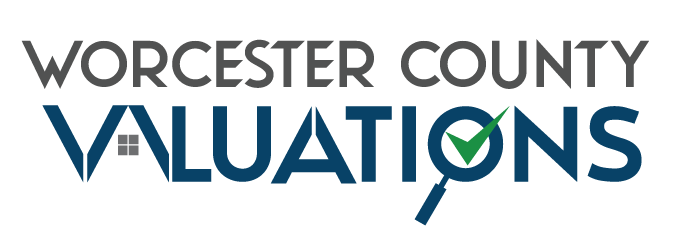The Importance of Estate Appraisals in Planning Your Future
The Importance of Estate Appraisals in Planning Your Future

Estate planning is an essential part of preparing for the future. The valuation of an estate is one of the most critical aspects of this process, and this is where professional estate and trust valuations come into play. This process, commonly referred to as estate appraisals, plays an integral part in the strategic management of your wealth and can greatly impact the financial future of your loved ones.
Understanding Professional Estate and Trust Appraisals
These valuations, also known as estate appraisals, are more than just calculating numbers. They provide a comprehensive overview of an estate’s worth, which aids in the strategic allocation and management of wealth. By understanding the total value of an individual’s assets, families can plan better for their future, make informed decisions, and protect their financial security.
Certified appraisers, using established industry standards, carry out these detailed assessments. The objective is to establish the estate’s fair market value. This figure is crucial, not just for estate planning, but also for accurate tax planning, smooth probate proceedings, and various other legal requirements.
It’s also worth mentioning that professional appraisers are well-versed in the specific legal requirements and standards of various states. This expertise is particularly relevant in regions like Massachusetts and Connecticut, where specific legal stipulations around estate and trust valuations may exist. Hence, their involvement ensures that all valuations are in compliance with the law, further facilitating a smooth legal process when the need arises.
The Need for Estate Appraisals in Estate Planning
The journey of estate planning is an intricate process, involving the careful distribution and management of an individual’s assets during their life and after their demise. When dealing with sizable assets, this process can become significantly complex, making the accuracy of estate appraisals highly essential. These appraisals form the cornerstone of many pivotal decisions. For instance, they guide how assets should be equitably divided among beneficiaries, impacting both their financial futures and familial relationships. Furthermore, estate appraisals play a critical role in calculating the tax liabilities that could potentially be inherited by the next of kin. Therefore, an error in the appraisal could result in beneficiaries either being burdened with undue taxes or facing penalties for tax discrepancies. Thus, the significance of obtaining a precise and reliable estate appraisal cannot be understated. It is a crucial step in creating a comprehensive and robust estate plan, which can protect and enhance the financial wellbeing of your loved ones long after you are gone.
Professional Estate and Trust Valuations for Probate Purposes
Probate is the legal process that takes place after an individual’s passing, where the validity of their will is determined, and assets are distributed. A key component of this process is the accurate evaluation of the decedent’s estate, done through professional estate and trust valuations, more commonly known as estate appraisals. These evaluations provide a critical snapshot of the estate’s worth at the time of death.
The information supplied by estate appraisals guides probate courts in their decision-making, particularly in cases where asset values are contested or unclear. Through a clear, unbiased, and detailed appraisal, courts can ensure that the distribution of assets aligns with the decedent’s wishes as expressed in their will.
Any disputes over the estate’s value can thus be addressed, avoiding unnecessary legal complications amongst potential beneficiaries. Additionally, estate appraisals facilitate the smooth execution of the will by providing a fair and accurate foundation for asset distribution.
It’s important to note that in certain regions, like Massachusetts and Connecticut, the process of probate may be influenced by specific legal requirements concerning estate and trust valuations. The involvement of professional appraisers, knowledgeable in these laws, can be beneficial in ensuring that all probate proceedings adhere to local regulations.
Professional estate and trust valuations during probate aren’t just a formality – they’re an essential tool for the legal system and families alike, bringing clarity, fairness, and transparency to the administration of a loved one’s estate.
Impact of Estate Appraisals on Tax Planning
Tax planning is an integral part of estate management, and accurate estate appraisals are key to this process. The monetary worth of an estate, determined by a professional appraisal, directly impacts the amount of estate tax due upon the demise of the owner. Overvaluation or undervaluation of the estate can significantly affect the tax obligations of the heirs. An overestimated estate value could lead to an inflated tax bill, increasing the financial burden on the inheritors. On the other hand, an undervalued estate could raise red flags with tax authorities, possibly leading to penalties for underreporting. This underscores the importance of a precise and reliable estate appraisal in safeguarding the financial interests of the heirs. By leveraging professional estate and trust valuations, you can ensure a fair, comprehensive assessment of the estate, thereby facilitating accurate tax computations and minimizing potential tax liabilities. This is especially relevant for estates in states like Massachusetts and Connecticut, where the appraisal must align with specific legal regulations for tax purposes. Therefore, a professional estate appraisal is not just a valuation of assets—it’s a strategic tool that can guide effective tax planning and protect the financial wellbeing of your loved ones.
Estate Appraisals: A Tool for Informed Decision Making
At the heart of any effective estate planning and tax strategy lies a solid, reliable estate appraisal. They serve as a lens to clearly understand the value of your assets, creating a solid foundation for all subsequent decision-making processes. When you engage a professional appraiser, you’re investing in accuracy and objectivity, crucial elements in making informed choices for your financial future. Estate appraisals are more than just a list of asset values, they are strategic tools that enable better planning, accurate tax computations, and a more efficient probate process. More importantly, they are your defense against potential over-taxation or underreporting penalties. By ensuring a precise, fair, and detailed evaluation of your estate, you’re not only safeguarding your wealth but also ensuring the financial wellbeing of your loved ones. Therefore, professional estate appraisals are a worthwhile investment for the insightful decision making and future-proofing your financial legacy.
Importance of Hiring a Professional Appraiser
Entrusting estate appraisals to a professional appraiser comes with a multitude of benefits that go beyond just numbers. Professionals in the field possess the necessary training, skills, and expertise to tackle the complexities of estate and trust valuations, ensuring that they are handled with accuracy and precision. Their understanding of the unique intricacies of different states’ laws and regulations, such as those in Massachusetts and Connecticut, ensures that the valuations are compliant with the legal stipulations of these regions.
More importantly, professional appraisers bring an objective and unbiased viewpoint to the table. Their goal is to offer a fair, honest and accurate assessment of the estate’s worth. This objectivity is crucial, especially when the valuation is a key component in estate planning, tax planning, and probate processes.
Additionally, professional appraisers are equipped to provide the appropriate documentation required for legal and tax purposes. They understand the importance of maintaining detailed records and delivering thorough reports, which can serve as valuable evidence during potential disputes or legal proceedings.
Opting for a professional appraiser essentially ensures that the valuation process is not only accurate but also transparent and legally compliant. This reliability provides peace of mind to all parties involved, making it an investment worth considering in the journey of estate planning and beyond.
When it comes to choosing a professional estate appraisal company, experience matters, give us a call today to lean how we can help you.

